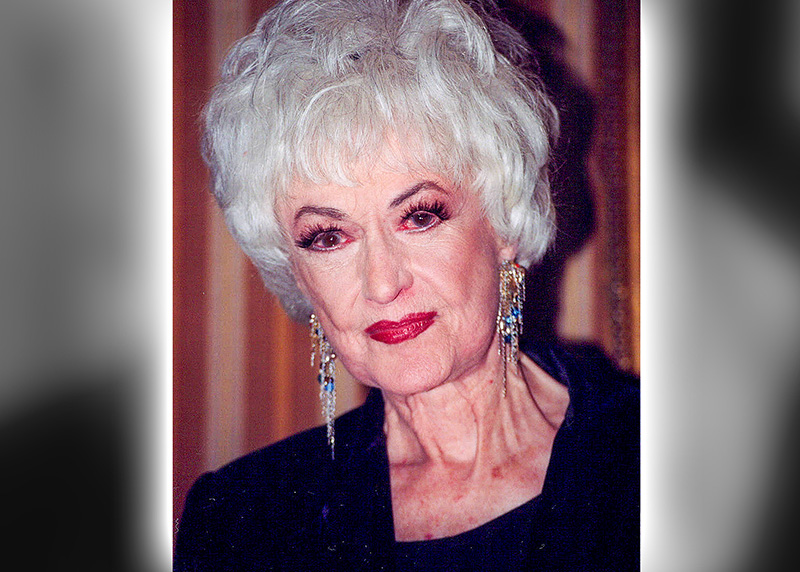Loudoun County School Board passes LGBTQ-inclusive equal opportunity policy
Policy will not change restroom policies, but will protect all LGBTQ students and staff from harassment and discrimination

On Tuesday, the Loudoun County School Board voted to amend its equal opportunity policy to add protections for LGBTQ students and employees of the school system.
The new policy now prohibits harassment or discrimination directed against individuals based on sexual orientation, gender identity, gender expression, and genetic information.
Supporters of the change have long argued that the protections are needed to ensure the safety and wellbeing of LGBTQ students who may feel alone, unsafe, or unsupported in school, and to ensure that qualified teachers are not fired or forced to leave for other school systems because of mistreatment at the hands of peers or supervisors.
Local activists, including members of Equality Loudoun and several out LGBTQ students, have been advocating for a change to the policy at monthly school board meetings since 2016, but their efforts were stymied by the previous iteration of the school board, whose members delayed action for months before eventually defeating a motion to add LGBTQ protections in January 2017.
At the time, however, the board unanimously approved a compromise motion that added a paragraph to the Loudoun County Public Schools’ equal employment policy stating that the school board “recognizes and values the diversity of the students and broader community it serves, and encourages diversity within its workforce.”
But opponents argued, both in 2017 and on Tuesday evening, that the change in the policy was unnecessary, overly broad, and not compatible with “Dillon’s Rule,” which states that local governments in Virginia cannot pass laws or add special protections that have not previously been approved by the General Assembly.
Attorney General Mark Herring has repeatedly pushed back against this interpretation, arguing that the General Assembly has previously passed legislation granting school boards a greater degree of leeway to manage themselves without seeking the approval of politicians or bureaucrats in Richmond — which means they can add LGBTQ protections to their equal opportunity policies if they see fit, whereas a county board of supervisors does not enjoy the same freedoms.
Opponents also argued that a broad policy would have unintended consequences and would infringe on cisgender students’ privacy by allowing transgender students to use restrooms and other facilities that match their gender identity. But supporters argued it was not their intention to alter current district procedures regarding transgender access to shared facilities or rooming assignments on overnight school trips.
Currently, the district decides, on a case-by-case basis, whether individual transgender students require additional accommodations and what those will look like.
According to LoudounNow, nearly 80 speakers lined up to address the board to comment on the proposal to add LGBTQ protections to the policy, as well as weigh in on a separate proposal to create a special committee to study equity concerns of minority groups — which was approved in response to an incident earlier this month in which a gym teacher told children to play a game in which some of them pretended to be runaway slaves.

When it came to the LGBTQ policy, opinion among speakers was split, as both proponents and opponents of the policy change sent out calls to their supporters to attend the meeting. Several activists noted that some prominent anti-LGBTQ activists who are affiliated with national conservative interest groups were in attendance at Tuesday’s meeting. They noted that those same activists had been present when school boards in neighboring Fairfax County and Prince William County approved similar LGBTQ-inclusive policies during contentious and sometimes raucous meetings.
In the end, School Board Vice Chairman Brenda Sheridan (Sterling), and members Beth Huck (At Large), Tom Marshall (Leesburg), Joy Maloney (Broad Run), and Chris Croll (Catoctin) voted for the LGBTQ-inclusive policy. Chairman Jeff Morse (Dulles) and members Debbie Rose (Algonkian), Eric Hornberger (Ashburn) and Jill Turgeon (Blue Ridge) voted against it.
Charlotte McConnell, a local activist and a member of the steering committee for Equality Loudoun, says she hoped voters would remember which school board members were unsupportive when they go to the polls on Nov. 5, 2019, to elect a new school board.
“I think it is important that the students have been recognized, by saying we see that there are LGBTQ students in our schools and they face discrimination, and we want to help you. We see you, we [will] protect you, we support you,” McConnell says. “This policy is not going to make it any easier for a transgender person to access the bathroom, but I think it sends a message to students, as well as staff, that we support this community, and anything said against them will not be tolerated.”

“There will be discussion among everyone at GSAs about what happened last night at the school board,” she adds. “I anticipate those students talking about it and knowing that [the inclusive policy] passed. That’s enough for me. I already feel like, even if it doesn’t go into effect immediately, those kids will feel like it did. They’ll feel vindicated and supported.”
McConnell, a county resident for eight years, notes that Loudoun has seen an “explosion” of new residents that has resulted in greater diversity of thought and changing attitudes on social issues, prompted by discussions around issues like equality.
“It helps that our neighboring counties have passed this policy, so I think that kind of emboldened people in Loudoun to consider making those changes,” she says. “I think there’s just been an overall increase in activism. People are paying attention more about what’s going on at the local level, including what’s going on at the school board.
“In Loudoun, we’re lucky to have technology making it really easy to watch the school board meeting on TV, or access the video footage online,” she adds. “So I think that really helps, just being able to engage in the process.”
McConnell says that while opponents of the proposal continue to raise the sensitive issue of bathrooms every time a nondiscrimination policy is discussed, she thinks that argument is worn out and losing some of its sting.
“I think they’re really taking talking points from the Family Foundation, and they’re trying to make people fearful. They’re trying to hit on people’s emotions,” she says. “We all want students to be safe. But the Family Foundation and their supporters cannot accept that a transgender girl is not a biological boy. So they keep sharing the talking points, and that’s the way it goes. But it didn’t go over last night.”
Support Metro Weekly’s Journalism
These are challenging times for news organizations. And yet it’s crucial we stay active and provide vital resources and information to both our local readers and the world. So won’t you please take a moment and consider supporting Metro Weekly with a membership? For as little as $5 a month, you can help ensure Metro Weekly magazine and MetroWeekly.com remain free, viable resources as we provide the best, most diverse, culturally-resonant LGBTQ coverage in both the D.C. region and around the world. Memberships come with exclusive perks and discounts, your own personal digital delivery of each week’s magazine (and an archive), access to our Member's Lounge when it launches this fall, and exclusive members-only items like Metro Weekly Membership Mugs and Tote Bags! Check out all our membership levels here and please join us today!
























You must be logged in to post a comment.